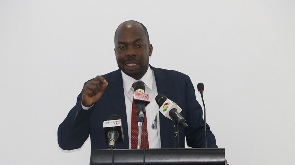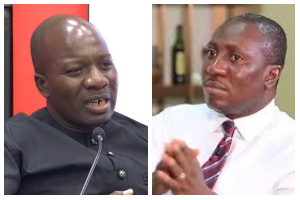The Independent Power Generators, Ghana (IPGG), has raised concerns over the recent 1.52 percent reduction in electricity tariffs announced by the Public Utilities Regulatory Commission (PURC).
According to the IPGG, this reduction may significantly impede ongoing efforts to restructure debts within the Electricity Company of Ghana (ECG), potentially causing hurdles in meeting their financial obligations.
Delivering a lecture on opportunities and challenges in Ghana’s energy sector in Accra on Tuesday, Dr Elikplim Kwabla Apetorgbor, Chief Executive of the Chamber, said Independent Power Producers (IPP’s) had been saddled with debts, making their operations unsustainable.
The lecture was organised by the Think Progress Ghana, a think tank, in collaboration with the Ghana Institute of Management and Public Administration (GIMPA) chapter of the Graduate Students Association of Ghana (GRASAG).
The event was under the theme "Dumsor Returns: An Evaluation of the Power Sector in Ghana: Opportunities and Challenges."
Dr. Apetorgbor highlighted the substantial financial pressures faced by the sector and cast doubts on the feasibility of debt restructuring given the reduced tariffs.
He expressed apprehensions about the uncertain continuity of their operations if a substantial tariff cut, possibly around 30% or 40%, is imposed, questioning who would bear the responsibility of settling their debts.
Clarifying the nature of the debts, Dr. Apetorgbor emphasized that they aren't derived from savings or profits, making the restructuring process considerably challenging.
Dr. Kwami Adanu, a senior fellow at Think Progress Ghana, stressed the importance of the country avoiding new commitments to thermal power contracts and devising strategies to raise funds for clearing the increasing debts within the energy sector.
He highlighted, "It's clear that, looking ahead in the medium to long term, our nation should explore micro grids. These platforms commonly harness renewable energy sources, and that's where our primary attention should be directed."
President of GRASAG GIMPA, Madam Sitsope Apetorgbor emphasized the pivotal role of energy in national life, particularly in household management and its significant impact on women.
She highlighted the repercussions of energy shortages on fundamental needs such as cooking gas and protection against mosquitoes, resonating deeply within homes.
Advocating for increased female involvement in energy policy and decision-making realms, Madam Apetorgbor suggested that their inclusion might inject more understanding and sensitivity into energy pricing concerns, especially for women managing small enterprises reliant on energy.
Drawing attention to specific instances faced by women in food businesses struggling with energy-related challenges, she underscored the substantial impact of energy costs on daily life.
These perspectives underscored the multifaceted implications of reduced tariffs on debt restructuring, household management, and the challenges faced by various sectors reliant on consistent and affordable energy sources in Ghana.
Business News of Wednesday, 29 November 2023
Source: www.ghanaweb.com













